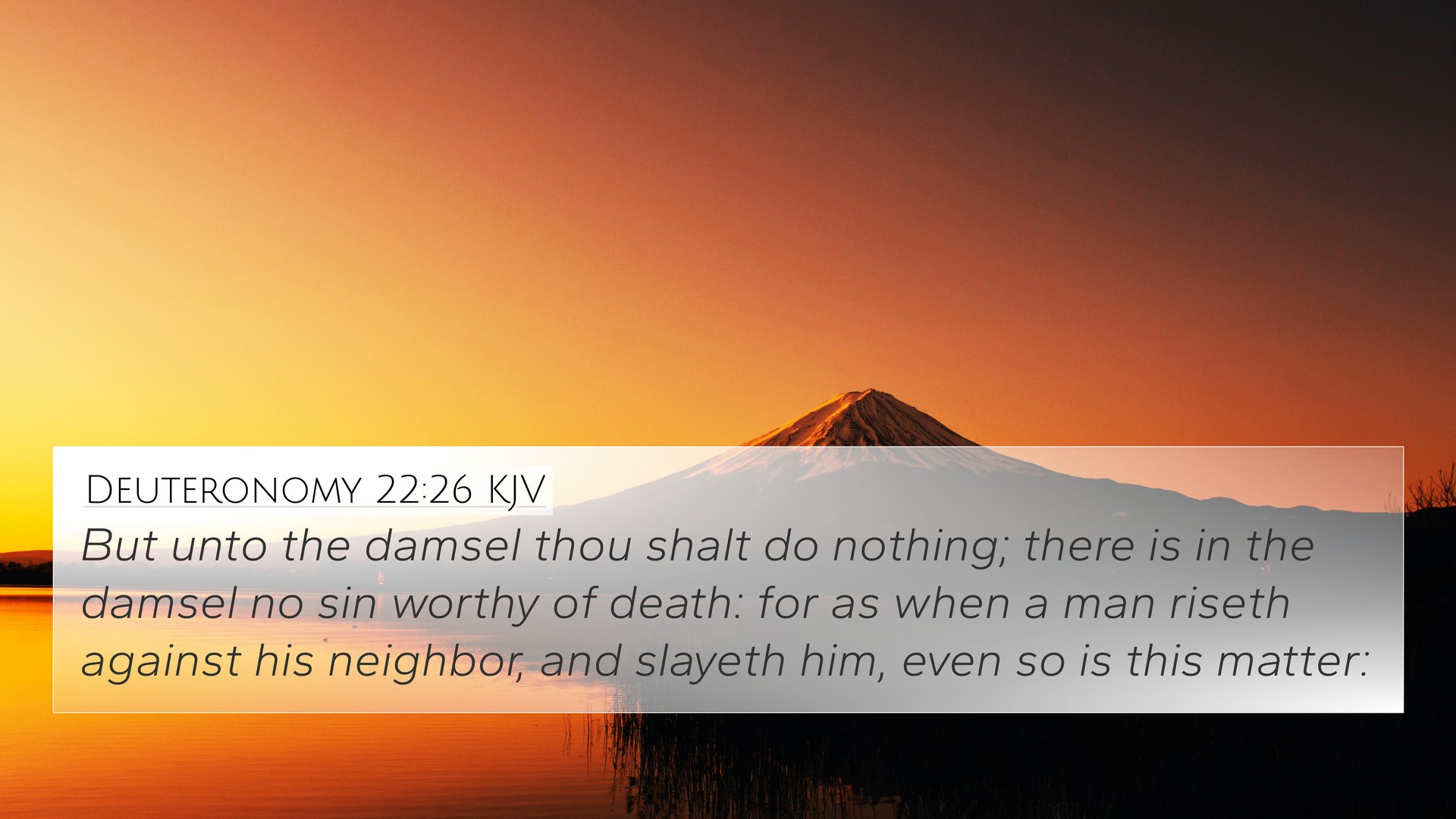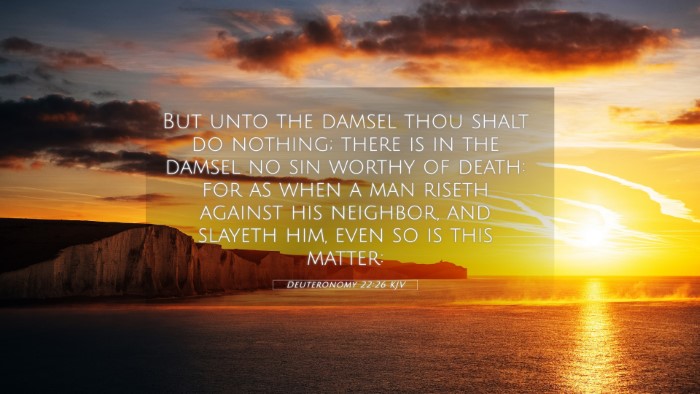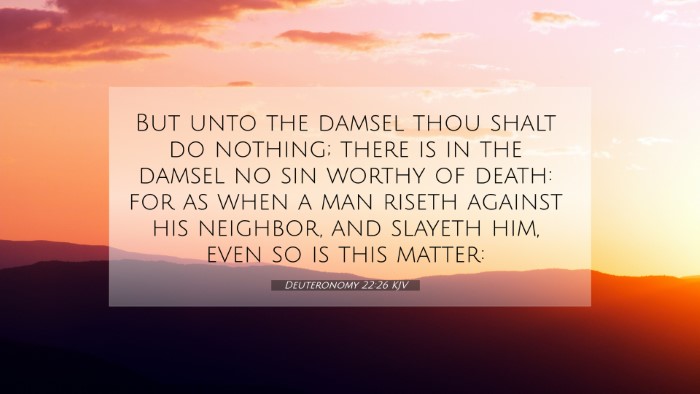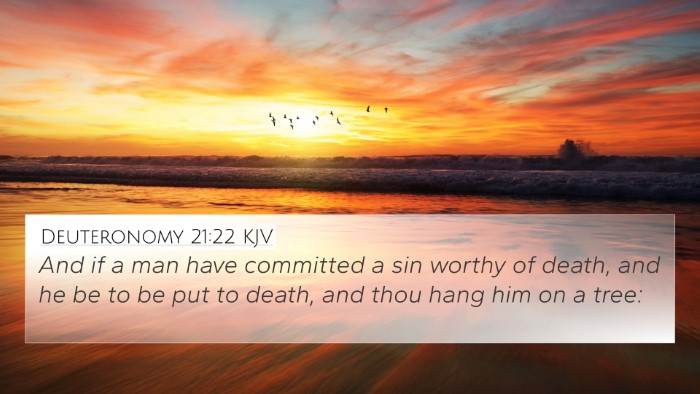Deuteronomy 22:26 - Summary of Meaning and Interpretation
Deuteronomy 22:26 states: "But unto the damsel thou shalt do nothing; there is in the damsel no sin worthy of death: for as when a man riseth against his neighbour, and slayeth him, even so is this matter." This verse discusses the gravity of certain acts related to sexual morality and emphasizes the protection of the innocent party, particularly the woman in this context.
Contextual Background
This scripture is located within a larger set of laws given to the Israelites. It reflects God's concern for justice and the need to uphold moral integrity within the community. The emphasis here is on the distinction between the wrongdoer and the victim, mandating that the innocent should not be punished for the transgressions of the guilty.
Insights from Commentaries
- Matthew Henry: Henry emphasizes that the verse is a declaration of the right treatment of young women who are victims of assault. He points out that the verse protects her dignity, indicating that she should not be blamed for the actions of her assailant. The law reflects God's justice by treating the offender with the severity he deserves.
- Albert Barnes: Barnes elaborates on the legal and social implications of the laws presented in this chapter. He notes that it seeks to prevent temptation and lawlessness within the community and affirms the need for repentance and just punishment for wrongdoing. Barnes insists on protecting those who are innocent while maintaining social order.
- Adam Clarke: Clarke highlights the societal importance of such laws, as they not only serve a judicial function but also help maintain public morality. He underscores the paradox of justice, where the guilty are deserving of severe repercussions while the innocent shall be spared from condemnation.
Modern Application
This scripture continues to resonate today, emphasizing a crucial moral principle - that the innocent should be treated with compassion and care while the perpetrators of wrongdoing are held accountable. Understanding these principles helps guide personal conduct, societal laws, and the treatment of victims within contemporary legal systems.
Cross-References
Deuteronomy 22:26 is connected with several other scriptures that shed further light on its meaning:
- Exodus 20:13: "Thou shalt not kill." - Highlights the sanctity of life and the moral obligation to respect it.
- Numbers 35:30-31: Discusses the necessity of witnesses and the value of just legal proceedings.
- Deuteronomy 19:10-13: Refers to the cities of refuge, where individuals can seek justice away from vengeance.
- Leviticus 18:22: Addresses immoral behavior and its implications, linking to the protection of the innocent.
- Proverbs 6:32: "But whoso committeth adultery with a woman lacketh understanding: he that doeth it destroyeth his own soul." - Emphasizing the personal destruction involved in immoral acts.
- 1 Peter 2:14: "Or unto governors, as unto them that are sent by him for the punishment of evildoers..." - Acknowledging authorities' roles in enforcing justice.
- Matthew 5:28: Jesus speaks on the nature of sin, illustrating that thoughts and intentions also bear weight in moral misconduct.
Further Study and Reflection
For those engaged in cross-referencing biblical texts, understanding the thematic connections can enhance one's biblical studies. Utilizing tools for Bible cross-referencing can aid in drawing parallels between these verses, thus providing deeper insights into God's law and the moral imperatives at play.
For example, Bible concordance and cross-reference guides offer resources for individuals looking to explore the links between the Old and New Testaments or identify connections relating to issues of morality and justice. Engaging in cross-reference Bible study can illuminate the continuity of God's message throughout the scriptures and assist in understanding the implications of individual verses in the broader biblical narrative.



